Think You Know Enough About Money? See Where Your State Ranks For Financial Literacy

Financial literacy is critical for lifelong success, but it hasn’t been a priority in terms of formal education in the United States. This is slowly changing, and upwards of 25 states now require at least some financial literacy education in order to receive a high school diploma. But other states are slow to change their ways.
To assess the current state of financial literacy in the United States, WalletHub analyzed consumer habits and financial education programs in all 50 states, plus the District of Columbia. WalletHub also used 17 key metrics, running from the share of adults with rainy-day funds to high school financial literacy grades, in its proprietary WalletLiteracy Test to further assess the state of financial literacy across the country. Average net worth of each state was collected by Empower, a financial services company. And educational standards mentioned for states are according to Ramsey Solutions.
Here’s a look at how the states stack up in terms of overall financial literacy, presented in reverse order.
Also quiz yourself on financial literacy with these expert questions.
For You: I’m a Financial Advisor: Here’s Why My Rich Clients Identify With the Middle Class
Trending Now: 4 Genius Things All Wealthy People Do With Their Money

Arkansas
Arkansas ranks dead last when it comes to financial literacy requirements. The state is tied for position 48 in terms of adults with rainy-day funds and its residents have a medium net worth of just $17,546. Arkansas is making strides in terms of financial literacy, however, as Arkansas students must now have completed a one-half credit in Economics and Personal Finance to graduate high school, according to The Nation’s Report Card on Financial Literacy.
Be Aware: Net Worth for US Families: How To Tell if You’re Poor, Middle Class, Upper Middle Class or Rich
Check Out: Toilet Paper to Discontinued Items: 7 Ways Shrinkflation Has Come to Costco

Oklahoma
Oklahoma is near the bottom of the barrel across the board when it comes to financial literacy metrics. It ranks number 45 in terms of financial knowledge and education, number 50 in terms of financial planning and habits, number 47 in terms of public high school graduation rate and number 48 in terms of the share of adults with rainy-day funds. The state requires individual districts to implement financial literacy standards.
See More: A $150K Income Is ‘Lower Middle Class’ In These High-Cost Cities

South Dakota
South Dakota’s overall rank is only number 49 but it posts better scores in specific metrics. Its WalletLiteracy score is number 16, and it ranks number four in terms of sustainable spending habits. The state requires financial literacy courses to be offered, but doesn’t require them to for the purposes of graduation.

Kentucky
Kentucky receives WalletHub’s absolute worst financial literacy ranking, at number 51. Although it also has a low financial planning and habits rank, it scores number 16 in terms of financial knowledge and education. Students must successfully complete at least one course or program meeting financial literacy standards in order to graduate high school.
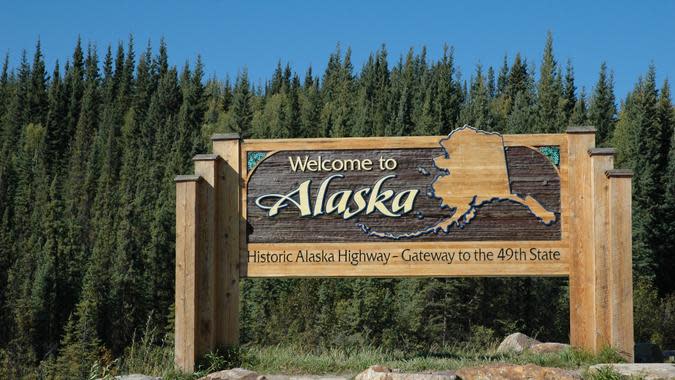
Alaska
Alaska is one of only four states (including Washington, D.C.) that has absolutely no financial literacy requirements. The state also has one of the country’s lowest high school graduation rates, ranking number 48 in the nation.

Tennessee
Tennessee ranks number 47 in terms of the share of adults with rainy-day funds and number 49 in terms of its WalletLiteracy scores. Students are required to take a one-half-credit course in financial literacy in order to graduate.
Explore More: 7 Popular Clothing Brands the Middle Class Can’t Afford Anymore
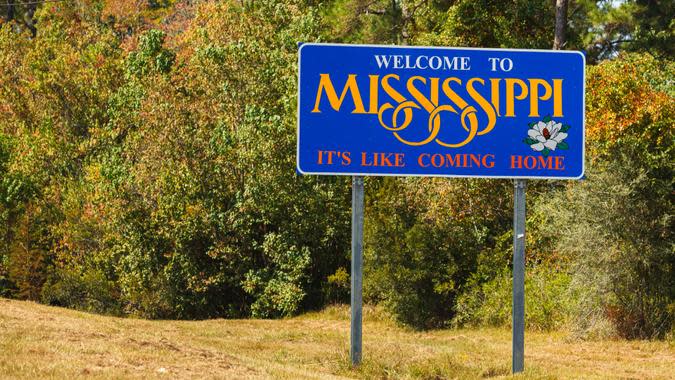
Mississippi
Mississippi ranks dead last when it comes to sustainable spending habits, at number 51. It also ranks dead last in terms of the share of unbanked households. While not dead last, Mississippi ranks number 50 in terms of the share of adults with rainy-day funds.

Louisiana
Louisiana ranks poorly in terms of many metrics of financial literacy. The state ranks number 47 in terms of adults borrowing from nonbank lenders, number 47 in terms of sustainable spending habits and number 50 in terms of unbanked households. Louisiana also comes in at number 47 in terms of median net worth.

California
California residents have one of the highest median net worths in the country, at $85,581. However, it still ranks quite poorly in terms of financial literacy, as it’s one of the four states in the country (including the District of Columbia) that doesn’t require any high school training.

District of Columbia
The nation’s capital ranks above average in terms of its WalletLiteracy and financial planning and habits rank, at position 18 and 13 respectively, but comes in at number 49 in terms of financial knowledge and education. It ranks dead last in terms of its public high school graduation rate. The District currently has no financial literacy requirements.
See Next: How Much Household Income Will Be Considered Upper Middle Class in 5 Years?

Nevada
Nevada ranks poorly in terms of its WalletLiteracy score, at number 46. However, its median net worth comes in at position 11 in the nation. The state is one of the eight that requires financial literacy standards to be implemented by individual districts.
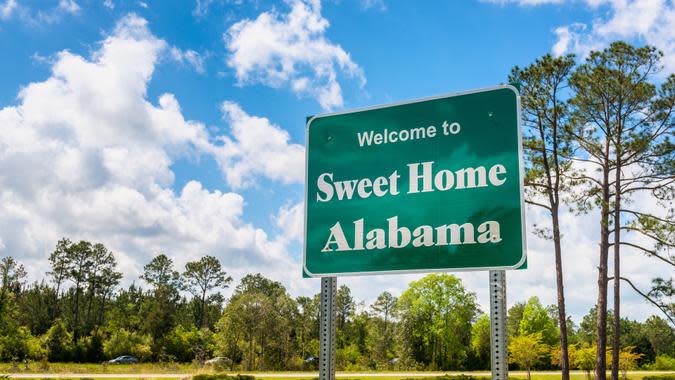
Alabama
Alabama is one of the 25 states that requires a financial literacy course in high school. House Bill 164, passed in May 2023, states that “Beginning with public school students entering ninth grade in the 2024 to 2025 school year, each student shall complete a course in personal financial literacy and money management before graduation from high school.”

Rhode Island
Rhode Island ranks number five in terms of adults with rainy-day funds and number two in terms of adults borrowing from nonbank lenders. But it comes up short in terms of financial knowledge and education, at number 40. The state is a bit unique in terms of financial literacy, requiring students to be financially proficient before graduation but offering a number of different ways to accomplish this.
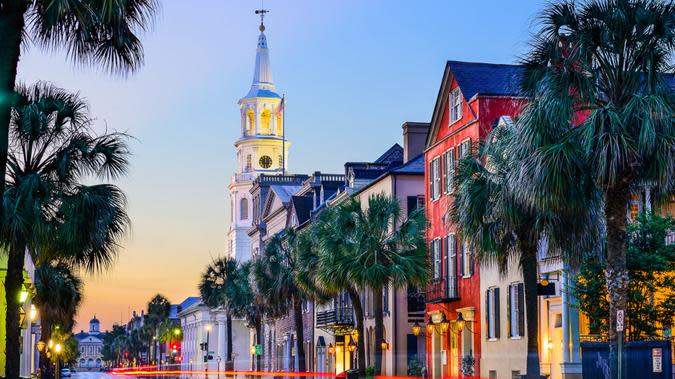
South Carolina
South Carolina now requires students to take financial literacy in order to graduate, beginning with the class of 2028. Overall, the state ranks in the bottom-third of financial literacy metrics.
Try This: 7 Things the Middle Class Won’t Be Able To Afford in the Next 5 Years
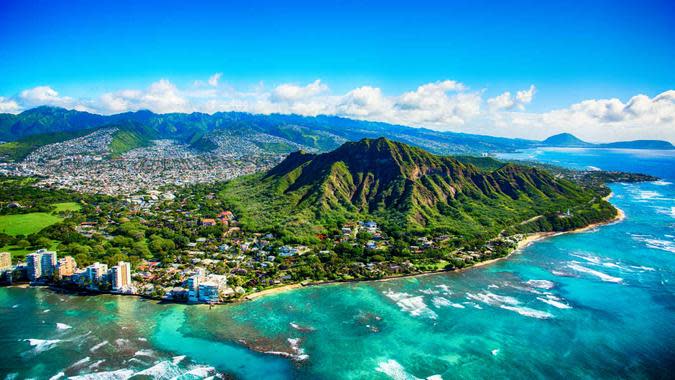
Hawaii
Hawaii is one of the four states that include financial literacy in their K through 12 standards. It does rank highly in a number of metrics, including the number of adults borrowing from nonbank lenders (number five), the share of unbanked households (number five) and the share of adults with rainy-day funds, where it ranks tops in the nation.
However, WalletHub only gives it a rank of number 46 in terms of financial knowledge and education.

Montana
Montana ranks number three in terms of its WalletHub literacy score, but it fares poorly in terms of its financial knowledge and education score, at number 47. Overall, the state’s net worth ranks number 41. Beginning in 2026, the state requires a one-half credit in economics or finance in order to graduate.

New Mexico
New Mexico has a good WalletLiteracy score of number 19, but it falls behind in terms of financial planning and habits, ranking number 49. The new House Bill 171, however, adds personal financial literacy as a social studies coursework requirement. It also allows schools to mandate it as a math requirement.
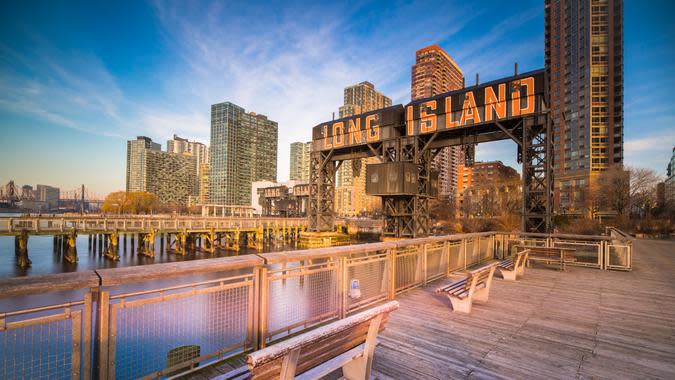
New York
New York ranks number 23 in terms of its WalletLiteracy score and number 17 in financial planning and habits, but it falls to position 42 in terms of financial education and knowledge. The state ranks number nine in terms of average net worth.
Discover Next: 7 Ways the Upper Middle Class Can Become Rich in 2024

Kansas
Kansas scores well in terms of its WalletLiteracy score, but it falls a bit short in terms of financial planning and habits and financial knowledge and education. The state is currently in the process of requiring at least one-half credit of financial literacy education starting in 2027.

Georgia
Georgia’s financial literacy score suffers for two reasons: it has a high share of unbanked households, ranking number 48 in the nation and it also ranks number 48 in terms of the share of adults borrowing from nonbank lenders. Starting in 2028, the state will require students to complete at least a half-credit course in financial literacy.

Wyoming
Wyoming may only rank number 31 in terms of overall financial literacy, but it takes the number one spot in terms of its WalletLiteracy score. The state is one of only four in the nation that don’t have any financial literacy requirements.

Illinois
Illinois has a middling financial literacy score, but its residents are doing quite well, ranking number eight in terms of average net worth. It is one of the states that requires financial literacy education but leaves it up to individual districts to implement the standard.
Trending Now: How Far a $100,000 Salary Goes in America’s 50 Largest Cities
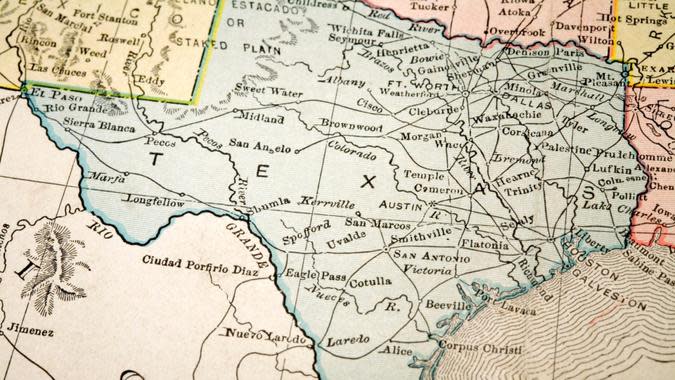
Texas
Texas ranks dead last in the country in terms of adults borrowing from nonbank lenders, coming in at number 51. It also scores relatively poorly in its WalletLiteracy score, at number 42. Financial literacy training is required, but it can be included in other subjects.
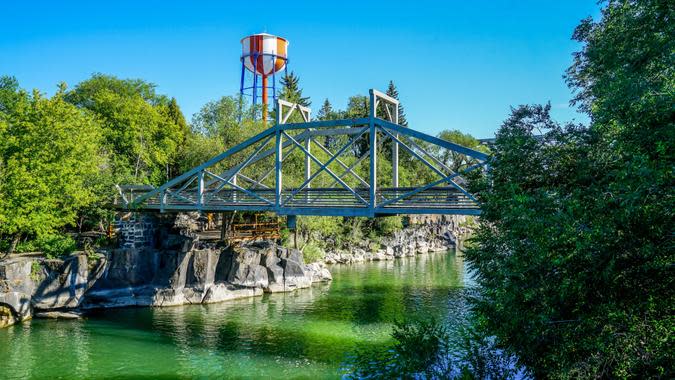
Idaho
Idaho is one of the eight states that require a financial literacy course but allow it to be integrated into other subjects.
Effective July 1, 2023, House Bill 92 requires that “Each school district, specially chartered district and public charter school serving students in grades nine through 12, or any combination thereof, shall provide to all students in grades nine through 12 one (1) or more courses in personal financial literacy and money management.”
The bill also states that completion of “this course will fulfill the financial literacy component of the high school graduation requirement.”

Pennsylvania
Pennsylvania is about average in terms of overall financial literacy, but it excels in terms of sustainable spending habits, garnering a number two rank in the country. Students are required to take a financial literacy course in order to graduate.
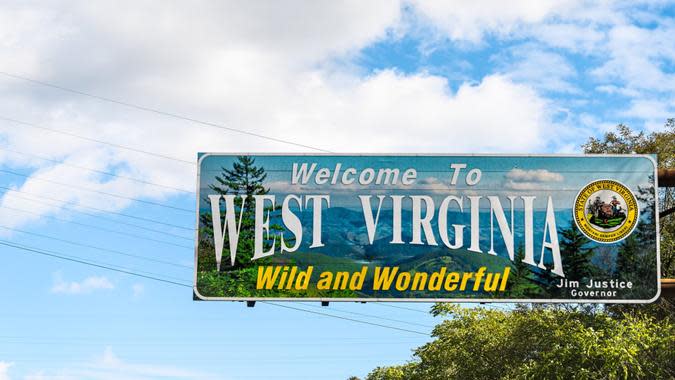
West Virginia
West Virginia is a study in extremes. On the one hand, the state ranks top in the nation in terms of its public high school graduation rate. On the other, it ranks dead last, number 51, in terms of adults with rainy-day funds.
Learn More: What Income Level Is Considered Middle Class in Your State?

Massachusetts
Massachusetts ranks highly in terms of financial planning and habits, coming in at number eight in the nation. It’s also one of the wealthiest states in the country, with the sixth-highest median net worth. The state includes financial literacy in its K through 12 standards.

Missouri
Missouri ranks very low in terms of unbanked households, coming in at number 49. However, its overall score jumps significantly thanks to a high financial knowledge and education rank of number nine.

North Dakota
In North Dakota, states require that a financial literacy course be offered, but it doesn’t necessarily have to be taken in order to graduate. Overall, the state runs about in the middle of the pack in terms of financial literacy.

Connecticut
Connecticut ranks number three in terms of the share of adults with rainy-day funds, which is perhaps not surprising considering the wealth of its residents. The state ranks number one in the nation in terms of average net worth, at $878,513, with a high median net worth of $81,332.
Find Out: 6 Industries That Won’t Exist by 2040

Arizona
Arizona is one of the eight states that require a financial literacy course to be offered, but allow the coursework to be integrated into other subjects. In 2019, Arizona Chapter 84 (Senate Bill 1184) mandated that “the state board shall require at least one-half of a course credit in economics, which shall include financial literacy and personal financial management.”
The state comes up short in two categories on a nationwide basis, however: the public high school graduation rate, at position 49 and sustainable spending habits, at number 50.

Ohio
Ohio ranks low in terms of sustainable spending habits, at number 49 in the country. As of 2026, students will be required to complete a one-half-credit course in financial literacy in order to graduate.
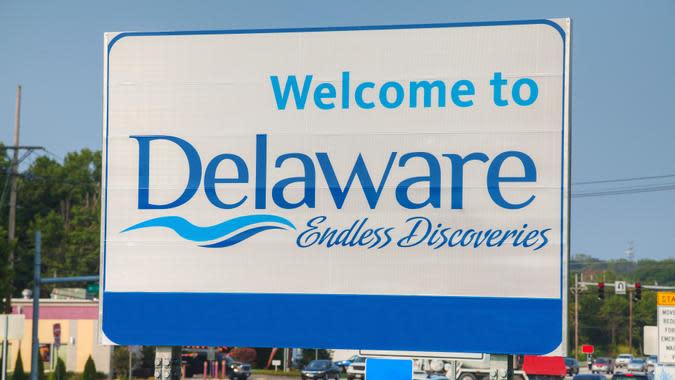
Delaware
Delaware is one of the states that require financial literacy education to be implemented by individual districts. Although residents’ median net worth is only $30,167, the state ranks number two in terms of the share of adults with rainy-day funds.

Michigan
Starting in 2028, Michigan high schoolers will be required, through House Bill 5190, to take a half-credit financial literacy course in order to graduate. Overall, the state has average to slightly above-average literacy scores.
Explore More: Net Worth for Baby Boomers: How To Tell Whether You’re Poor, Middle Class, Upper Middle Class or Rich

Indiana
Indiana is in the top third of the nation in terms of financial literacy and its education may have a hand in that. The state ranks number five in terms of its public high school graduation rate. Beginning in 2024, all high school students in the Hoosier state must complete a personal financial responsibility course before graduating.
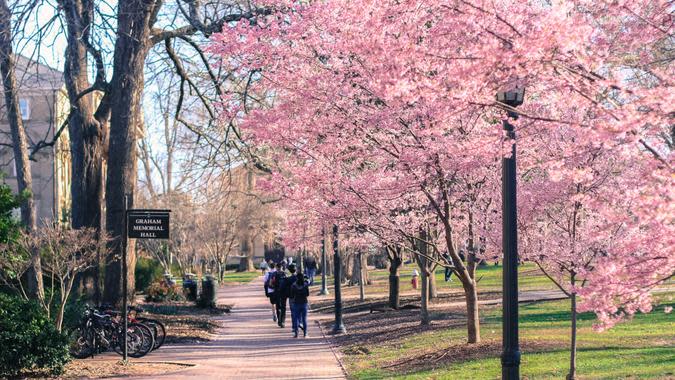
North Carolina
North Carolina’s overall ranking is helped by a number 8 placement in terms of financial knowledge and education. A full credit Economics and Personal Finance course is a requirement for high school graduation.
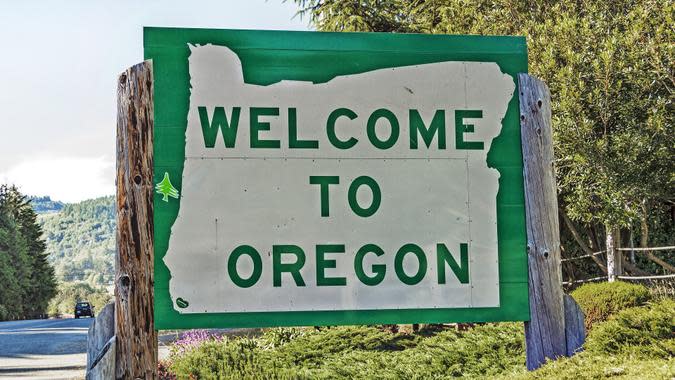
Oregon
Oregon ranks low in terms of WalletLiteracy, at position 47, but high in terms of financial knowledge and education, at number four. As of 2027, Oregon students will have to complete a half-credit personal finance course to graduate.

Maine
Maine receives one of the top WalletHub financial literacy scores in the nation, at number two. It comes up a bit shorter in terms of financial planning and habits and financial knowledge and education, at numbers 24 and 35 respectively.
Check Out: Here’s What the US Minimum Wage Was the Year You Were Born

Vermont
Vermont’s WalletLiteracy score is the fifth-highest in the country. It’s one of four states that include financial literacy in their K through 12 standards. Vermont ranks number one in the nation in terms of adults borrowing from nonbank lenders.
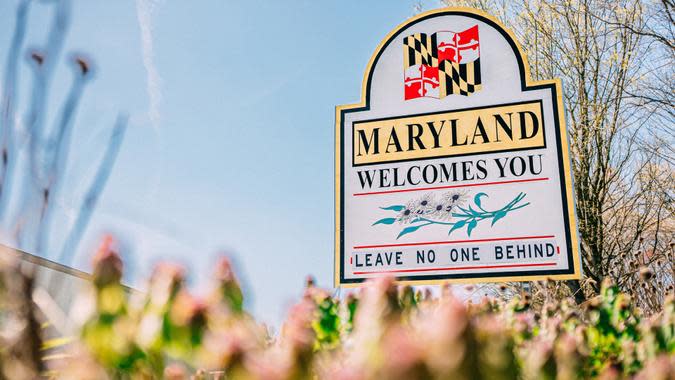
Maryland
Maryland requires individual districts to implement financial literacy standards. According to the Maryland State Department of Education, “each program of instruction must be aligned to the Maryland Personal Financial Literacy State Curriculum.” Maryland ranks number 20 in terms of average state net worth.

Florida
Starting in 2027, high school students will take a half-credit financial literacy course in order to graduate. The state scores well in terms of WalletHub’s financial knowledge and education metric.

Washington
Washington ranks number three in the nation in terms of its financial planning and habits score. It’s one of four states that include financial literacy in its K through 12 standards. The average net worth in Washington is among the top five highest in the country, at $766,158.
Be Aware: Here’s How Much You Need To Earn To Be ‘Rich’ in Every State

Wisconsin
Wisconsin has a high WalletLiteracy score — number six — and also a high financial planning and habits rank, at number four. It’s one of the 25 states in the nation that requires financial literacy education in schools. Starting in 2028, students must take a one-half credit standalone course in financial education.

Iowa
Iowa ranks number two nationally in terms of high school graduation rate. It requires students to take at least one half-unit of financial literacy to graduate.

Utah
Utah is a bit of a dichotomy, as it scores poorly in its WalletLiteracy score — position 43 — but it’s number two in the nation in terms of financial knowledge and education. It also has the lowest number of unbanked households in the entire country.
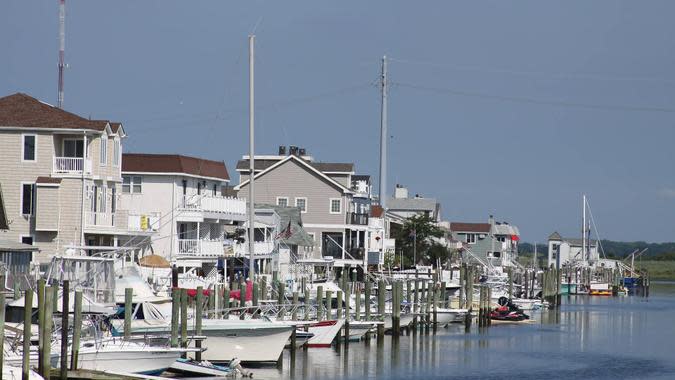
New Jersey
New Jersey requires a financial literacy course in high school, but it can be integrated with other subjects. The state boasts the fourth-highest median net worth in the country.
See More: Here’s the Salary Needed to Actually Take Home $100K in Every State

New Hampshire
New Hampshire earns high marks across the board when it comes to financial literacy. The state ranks number four in its WalletLiteracy score, number three in the share of adults borrowing from nonbank lenders and number four in terms of unbanked households. As of 2027, a standalone financial literacy course will be required to graduate high school.
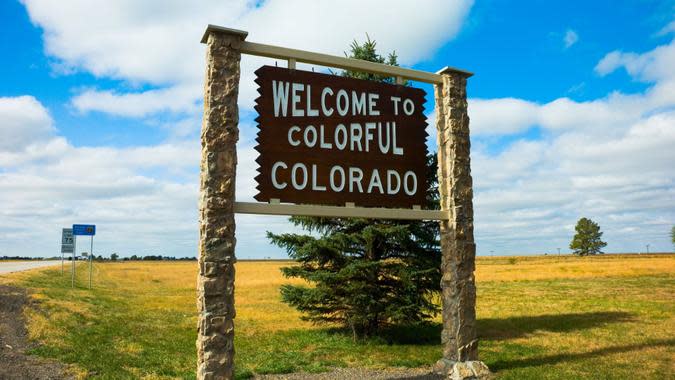
Colorado
Colorado is one of the nation’s leaders in terms of sustainable spending habits, ranking number two overall. Although it does have high school financial literacy requirements, it’s one of the eight states that only requires standards to be implemented by district, rather than statewide.

Virginia
Virginia’s WalletLiteracy score is only number 32, but it ranks at the top of the heap in terms of its financial knowledge and education score. Only 1.8% of the state’s residents don’t have bank accounts, compared with 2% to 11% in most other states. Virginia is one of the states that requires financial literacy education in schools.
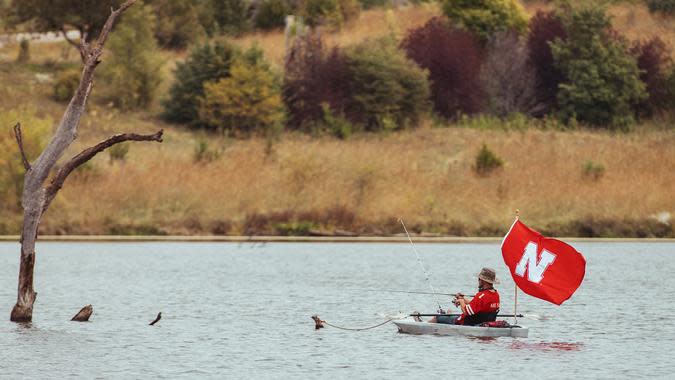
Nebraska
Nebraska ranks as the second-most financially literate state, and it’s one of the 25 that require a financial literacy course to be taught in high school.
Read More: I’m a Self-Made Millionaire: 5 Stocks You Shouldn’t Sell

Minnesota
Minnesota comes in first place in terms of overall financial literacy. Financial education is a part of the K through 12 curriculum and high schoolers must take at least one personal finance-related course. The state ranks number one in terms of sustainable spending habits and it has the lowest percentage of adults who spend more money than they make, at around 15%.
More From GOBankingRates
I'm a Shopping Expert: 9 Items I'd Never Put in My Grocery Cart
This is One of the Best Ways to Boost Your Retirement Savings in 2024
This article originally appeared on GOBankingRates.com: Think You Know Enough About Money? See Where Your State Ranks For Financial Literacy
